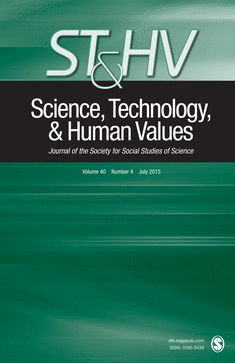Annalisa’s new article, a foundational contribution to the Processing Citizenship ERC project, has just been published open access by Science, Technology and Human Values. Enjoy!
“Processing Alterity, Enacting Europe. Migrant Registration and Identification as Co-construction of Individuals and Polities” is Processing Citizenship‘s first article on a peer-review journal, now out on the STS journal Science, Technology and Human Values. The article introduces the concept of “alterity processing” to account for the simultaneous enactment of individual “Others” and emergent European orders in the context of migration management. Alterity processing refers to the data infrastructures, knowledge practices, and bureaucratic procedures through which populations unknown to European actors are translated into “European-legible” identities.
By drawing on fieldwork conducted in Italy and the Hellenic Republic from 2017 to 2018, this article argues that different registration and identification procedures compete to legitimize different chains of actors, data, and metadata as more authoritative than others. Competing procedures have governance implications, as well, with some actors being included and others being excluded. Furthermore, there is evidence that—despite procedural rigidities—applicants themselves propose alternative chains of actors, data, and metadata that are more meaningful to them. In this tension, it is not only the individual Other that is enacted but also specific bureaucratic orders cutting across old and new European actors and distinctive understandings of “Europe.”
From a technology studies perspective, this article engages in a dialogue with the emergent debate on Hotspots, the scholarship about the infrastructural construction of Europe and political sociology.
Pelizza, A. (2019), ‘Processing Alterity, Enacting Europe. Migrant registration and identification as co-creation of individuals and polities’, Science, Technology and Human Values, first published online on February 6th, 2019: 1-27. DOI: 10.1177/0162243919827927
